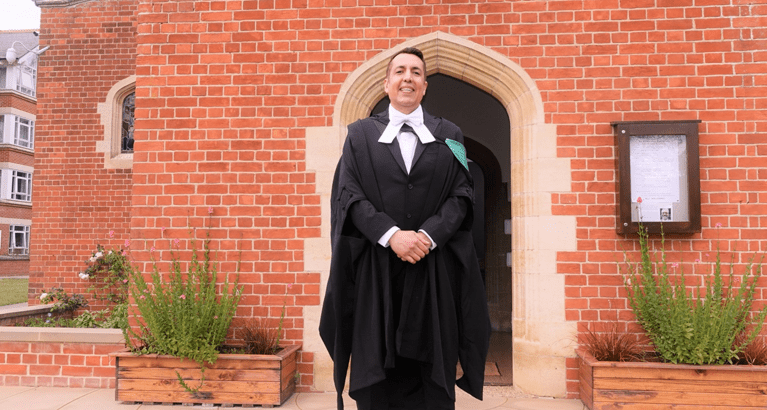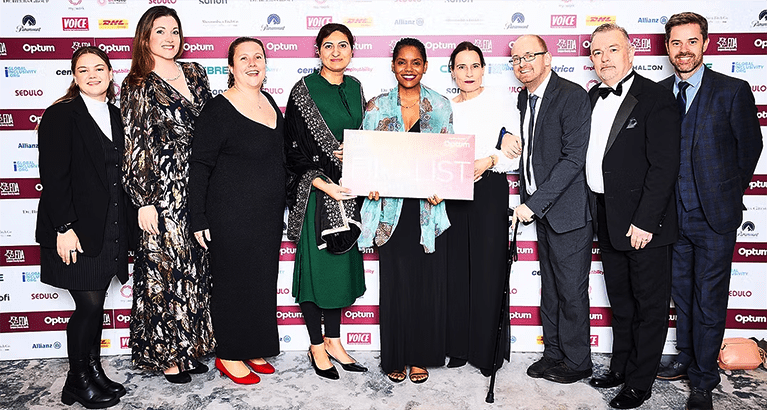What is the GMAT/EA?
The Graduate Management Admissions Test (GMAT) and the Executive Assessment (EA) are exams that evaluate whether you have the academic skills to succeed on a business school programme. These tests are recognised by schools around the world, and a strong score can demonstrate your preparedness for the academic rigour of the Cambridge Executive MBA programme.
Do I need to take the GMAT/EA to apply for the EMBA?
The GMAT or EA is an indicator of your readiness to re-enter a rigorous academic environment. You will need to either take the GMAT or EA and submit your score with your application or apply for a GMAT/EA waiver as part of your application. If you are unsure whether you would qualify for a waiver, please contact our Admissions Team.
How will I know if my waiver is accepted?
A GMAT/EA waiver request will be assessed by the Executive MBA Admissions Committee and at least one faculty member. You may be asked to complete the GMAT/EA as a condition to being interviewed for the programme or as an offer condition after interview.
If I wanted to take the GMAT/EA exam, what score would you accept?
We look for balanced scores between the verbal, quantitative, and integrated reasoning sections of the test. As a guide, we would expect scores of 50th percentile in each subsection (GMAT or EA) to strengthen a case that does not meet the minimum requirement (Bachelor’s (Hons) degree with grade of 2:1 in the UK system or international equivalent). For the Executive Assessment, 50th percentile scores will usually be around 10 in each section and an overall score or roughly 153.
GMAT or EA?
We will consider results from either the GMAT or the EA. However, the EA is specifically designed for EMBA programmes and the format/study time is often more suitable for senior executives.
What to do next
1
Confirm whether you meet our minimum academic requirements
Use our Graduate Admissions International Qualifications tool to find out whether you meet the minimum academic requirements for the programme. If you do not meet our minimum requirements and would still like to apply for the programme, please consult with a member of our Admissions Team.
2
Submit your CV for review
Upload your CV and our Admissions Team will complete a profile review. You can follow-up on this review to discuss your eligibility for the waiver.
3
Write your GMAT/EA waiver
The EMBA application form has a text box in which you can write a short paragraph explaining why you would be eligible for a waiver.
Final points
To be considered, you should complete the application form, provide evidence that you meet our academic requirement and complete the waiver. The Admissions Committee, which includes at least one EMBA faculty member, will review your full application and waiver.
The ultimate decision on applications to the programme is made by the Admissions Committee, and decisions are based on your responses to the application questions, strength of your academic background and your work experience.
Review our admissions requirements
Our EMBA programmes are designed for you if you are a senior executives looking to apply your knowledge and skills as you learn. Find out about our requirements.
Student and alumni news
Startup lessons turned into a founder playbook
Learn how Cambridge Executive MBA graduate Massimo Schäppi turns a decade of startup lessons into ‘Gründen ohne Umwege’, a playbook for founders from idea to investment.
Student and alumni news
A leadership journey
Joe Calder (Executive MBA 2020) has received a St John Volunteer Corps Award for volunteer services in recognition of his work with the disadvantaged in society. Joe received his award along with other St John volunteers. He shares his experiences and insights on the transformative power of volunteering, highlighting how it has shaped his personal and professional journey.
The Executive MBA (EMBA) team at Cambridge Judge Business School was named Diversity Team of the Year at the 2025 European Diversity Awards, which celebrate individuals and organisations leading the way in diversity, equity and inclusion.





